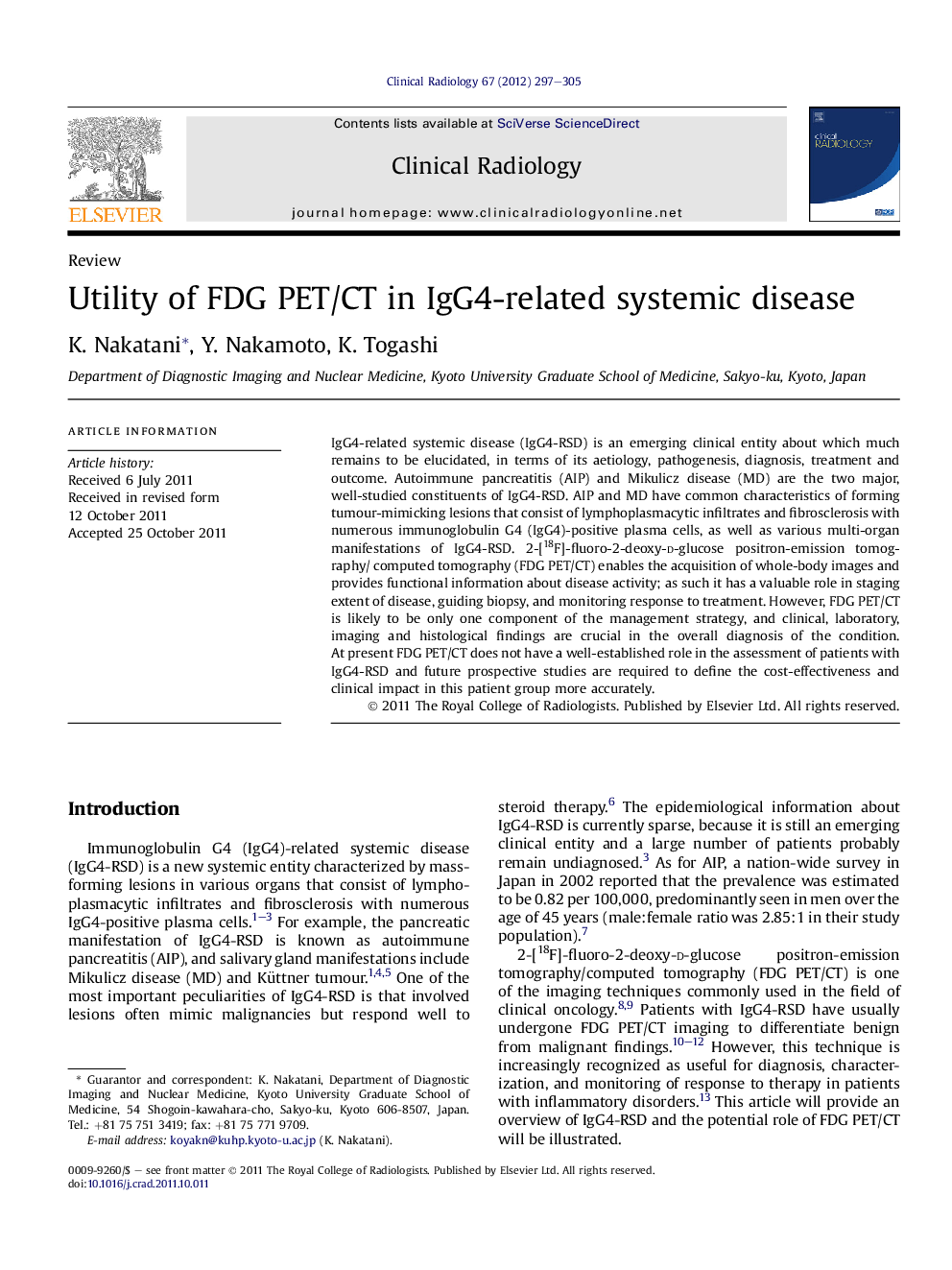| Article ID | Journal | Published Year | Pages | File Type |
|---|---|---|---|---|
| 3982092 | Clinical Radiology | 2012 | 9 Pages |
IgG4-related systemic disease (IgG4-RSD) is an emerging clinical entity about which much remains to be elucidated, in terms of its aetiology, pathogenesis, diagnosis, treatment and outcome. Autoimmune pancreatitis (AIP) and Mikulicz disease (MD) are the two major, well-studied constituents of IgG4-RSD. AIP and MD have common characteristics of forming tumour-mimicking lesions that consist of lymphoplasmacytic infiltrates and fibrosclerosis with numerous immunoglobulin G4 (IgG4)-positive plasma cells, as well as various multi-organ manifestations of IgG4-RSD. 2-[18F]-fluoro-2-deoxy-d-glucose positron-emission tomography/ computed tomography (FDG PET/CT) enables the acquisition of whole-body images and provides functional information about disease activity; as such it has a valuable role in staging extent of disease, guiding biopsy, and monitoring response to treatment. However, FDG PET/CT is likely to be only one component of the management strategy, and clinical, laboratory, imaging and histological findings are crucial in the overall diagnosis of the condition. At present FDG PET/CT does not have a well-established role in the assessment of patients with IgG4-RSD and future prospective studies are required to define the cost-effectiveness and clinical impact in this patient group more accurately.
